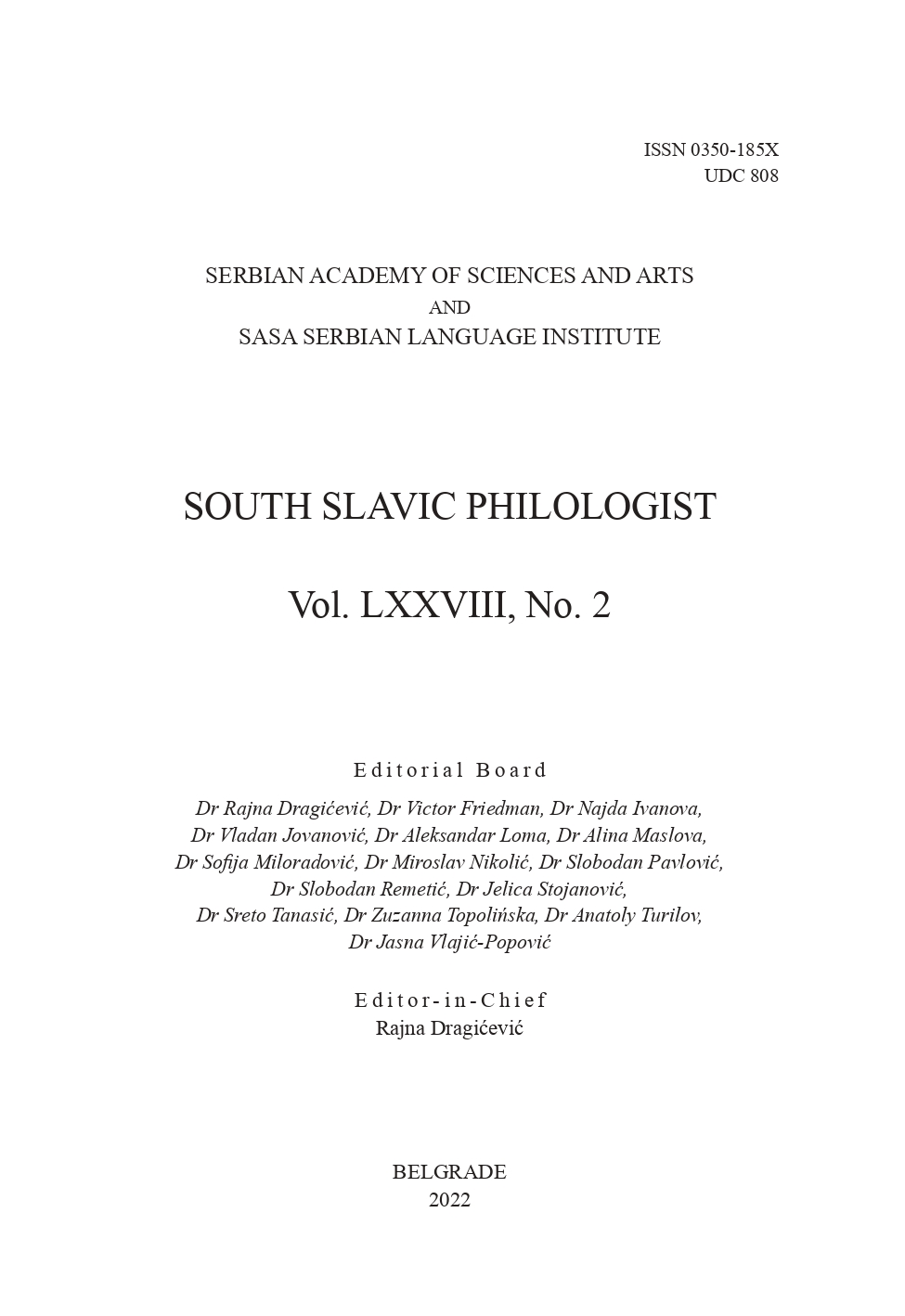О ПОРЕКЛУ ОПТАТИВНЕ УПОТРЕБЕ ГЛАГОЛСКОГ ПРИДЕВА НА -Л
ON THE ORIGIN OF THE OPTATIVE USE OF THE VERBAL ADJECTIVE IN -L
Author(s): Jasmina Grkovic-MajorSubject(s): Morphology, Historical Linguistics, South Slavic Languages
Published by: Институт за српски језик Српске академије наука и уметности
Keywords: verbal adjective in -l; optative; Proto-Indo-European; Proto-Slavic; Serbian
Summary/Abstract: This paper deals with the origin of the optative function of the verbal adjective in -l in the Serbian language, a functionally restricted and stylistically marked modal form. Within synchronic analyses, it is usually explained as secondary form: a result of reducing complex verbal forms, whose constituent it represents today. By applying diachronic and comparative linguistic analysis it is shown that the formant *-l- is of Proto-Indo-European origin, appearing in both verbal and nominal systems of IndoEuropean languages. The diversity of formations with the element *-l- is explained by the assumption that in early Proto-Indo-European this element was a kind of modal particle, which in the process of creating inflection became a grammatical morpheme. In Proto-Slavic, the originally modal verbal-nominal form in *-l- developed in two ways: on the one hand, it produced adjectives (mostly resultatives, but also adjectives with a modal nuance) and, on the other, it became part of complex verbal forms in the domain of non-present (perfect, pluperfect, conditional). The independent modal verbal form in *-l- was preserved in the optative function as an archaism, which explains its markedness and restricted use in specific contexts.
Journal: Јужнословенски филолог
- Issue Year: 78/2022
- Issue No: 2
- Page Range: 147-158
- Page Count: 12
- Language: Serbian

